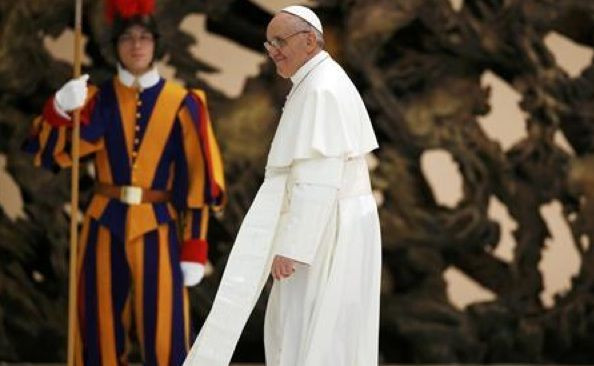China Quietly Revises Church Regulations Requiring Government-Approved Catholic Bishops

The Chinese government has essentially pulled rank on the Vatican with its recent ruling that all bishops in the country need to be selected by a Chinese-run religious bureau. The new regulation regarding the election of bishops gives the government-backed Bishops Conference of the Catholic Church in China control over appointees and the ability to override decisions made by the Vatican.
The ruling was passed in April but only recently came to the attention of China’s religious followers, sparking strong opposition to the notion of bishops or other religious leaders being aligned with the values of China’s ruling Communist Party.
“The revision is a regression as it blocks the normalization of Church life in China,” Anthony Lam Sui-ki, a senior researcher at Hong Kong diocese’s Holy Spirit Study Center said in a report by Union Catholic Asain News, an independent Catholic news source in Asia. “But it also reminds Vatican-approved bishops to be brave and not to be frightened by the authorities.”
While bishops are typically appointed and approved only by the Vatican, China’s regulation stipulates that a diocese must come to an agreement with China’s BCCCC and the Party’s State Administration for Religious Affairs in order to begin the process of appointing a new bishop. This has created a divide between China’s officially sanctioned Catholics who operate under the approved Chinese Catholic Patriotic Association (CPA), an estimated 5.3 million, and the 3 million to 6.7 million Catholics practicing outside of the CPA, who are loyal only to the Vatican. The CPA also oversees 70 bishops in China, all of whom have been approved by the state and run more than 6,000 churches across the country, compared to the estimated 40 bishops that have not been officially approved by the CPA or the religious affairs bureau.
CPA chairman Anthony Liu Bainnian, who also heads the Bishops Conference of the Catholic Church of China, said candidates for bishop must “love the country and love religion; politically, they should respect the Constitution, respect the law, and fervently love the socialist motherland.” Under these conditions, China, which is officially an atheist state, continues to allow government-aligned churches to operate legally.
Progress was made when Pope Benedict XVI wrote a letter in 2007 to Chinese priests urging China’s so-called underground Catholics, those who follow the Vatican strictly, and those who operate under the government to unite. Tensions flared again when Thaddeus Ma Daqin, 45, a Vatican-approved and then government-endorsed bishop was stripped of his title after making critical remarks during his consecration in July 2012.
The election of Pope Francis in early February this year could have been a chance to start anew, but the Vatican’s long-standing relationship with Taiwan angered mainland China’s central government. While Taiwanese President Ma Ying-Jeou attended Pope Francis’ inaugural Mass, there was no representative from China’s cabinet. In a press briefing, China’s Foreign Ministry spokeswoman Hua Chunying called on the Vatican, one of the 23 states in the world that recognize Taiwan as a sovereign nation, to “sever its so-called diplomatic relations with Taiwan and recognize the Chinese government as the sole legal representative of all of China.”
© Copyright IBTimes 2024. All rights reserved.






















